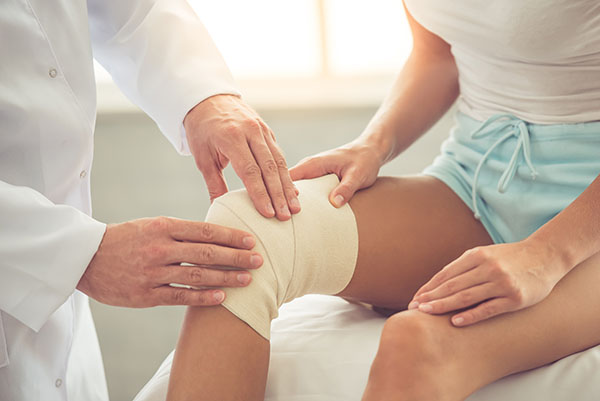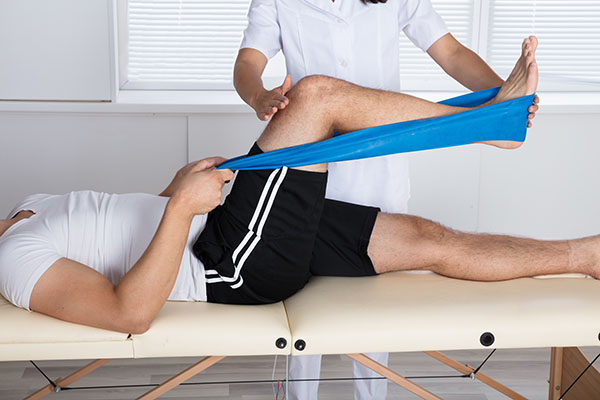January 17th, 2019

Knee replacement surgery can be scary, but the goal of having a total knee replacement is to relieve terrible symptoms like chronic knee pain or limited mobility. If you visit a qualified orthopedic surgeon for a knee joint replacement in Atlanta, you'll be back on your feet again with minimal recovery time. Also, you'll experience relief from symptoms that may have interfered with your independence and participation in activities that you love, like exercise or socializing with family.
However, knee surgery isn't the final step in achieving knee health. For you to avoid old symptoms coming back and to avoid injuring ligaments of the knee all over again, you need to practice knee health. These are some recommendations from knee replacement specialists on how to care for your new knee and how to avoid further injuries.
Knee replacements aren't invincible, but with the following tips, you can help ensure long-lasting knee health for the remainder of your life.
Manage Weight
Knee joints are responsible for carrying the weight of your body every time you stand, walk, and participate in sports or exercise. Every single pound above a healthy weight puts three or four pounds of excess strain on your joints, especially your knees. Your knees are designed to carry a healthy body weight, help propel this body weight in physical activity, and move your body between standing and sitting positions. But if you're overweight or obese, you're putting tremendous strain on your replacement knee.
Maintain Leg Muscle
Protecting your leg muscles can help keep your knees strong. By no means do you have to do deadlifts and squats with heavy weights, but you should at least walk and engage in other light exercise several times a week. This keeps your thigh, quadriceps, hamstring, and calf muscles strong and flexible. Healthy muscles act as shock absorption, which protects your new knee from injuries.
Make sure you stretch your legs after exercise, and as a warm-up. Just don't overstretch; only engage muscle in a comfortable position. This is important to muscle and joint health.
Wear Proper Shoes
Appropriate footwear affects knee health. Cushioned and fitted shoes support your feet, help you walk and exercise with good form, and reduce load impact on your knees. Owning good athletic shoes is also good motivation to get back in shape.
Don't Overdo It
No matter how active you used to be, your body won't be immediately ready for intensive exercise again after knee replacement surgery. If you have a new knee, follow your doctor's recommendations for engaging in light, introductory exercise. Stay off your feet if you're experiencing knee pain or stiffness. If you want to return to a full range of athletic activities, work your way up to them. Don't immediately put yourself in harm's way.

Why Protect Your Knees?
A new knee is a replacement for knee tissue; it isn't a replacement for knee care. If you undergo a knee replacement procedure and then fail to protect your knee using the above recommendations, you can find yourself experiencing repeat flare-ups of pain, stiffness, or limited mobility.
To learn more about undergoing a knee joint replacement in Atlanta, visit OrthoAtlanta for experienced and skilled knee care.
Back






